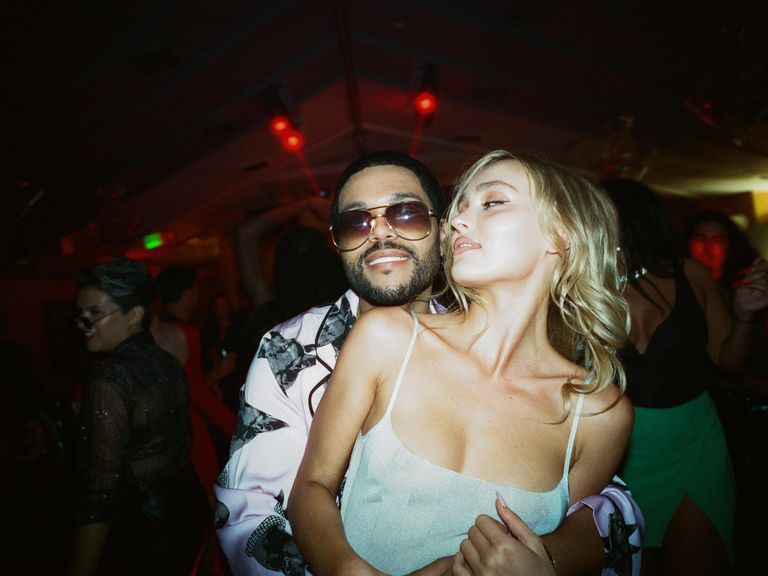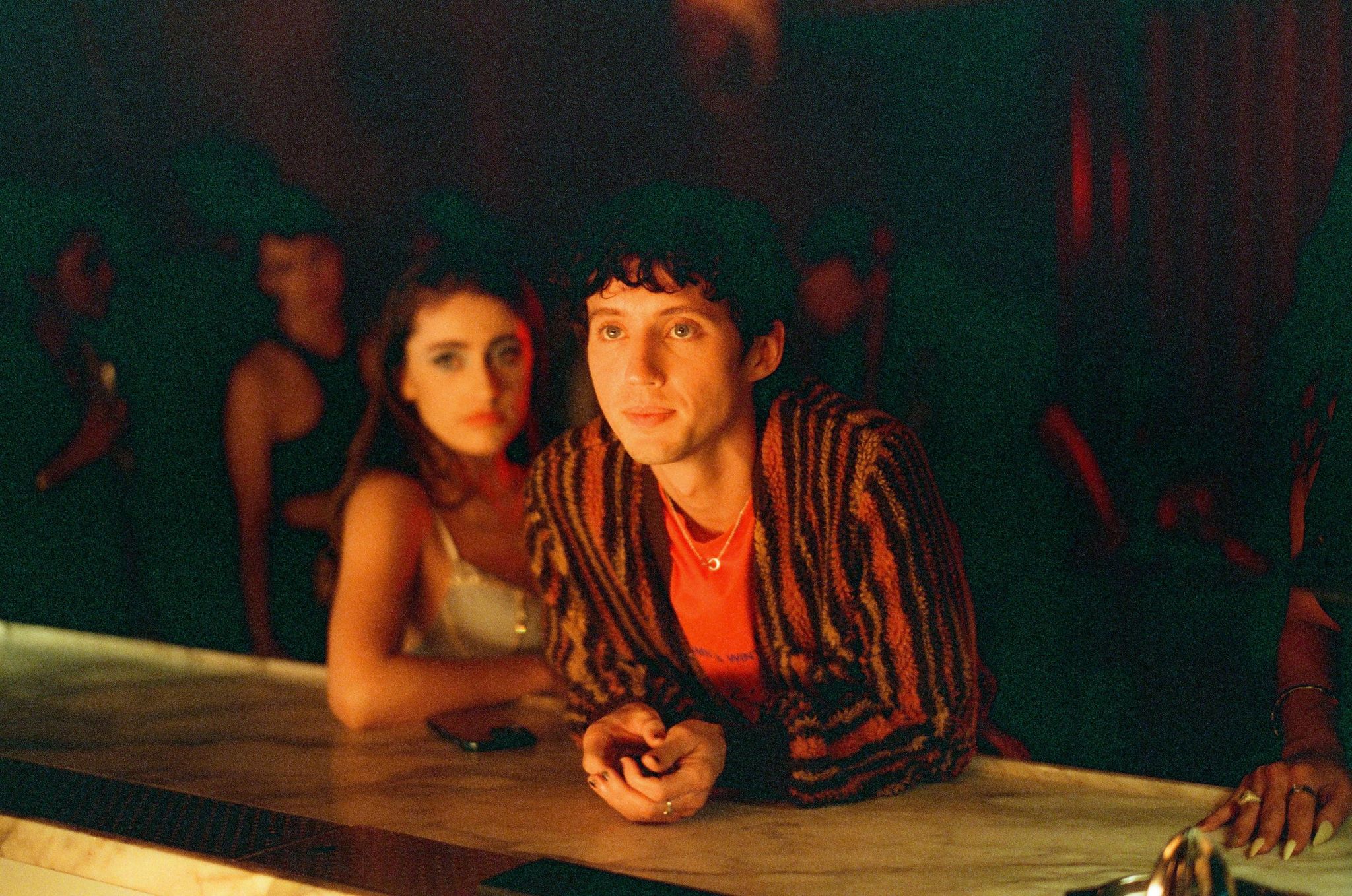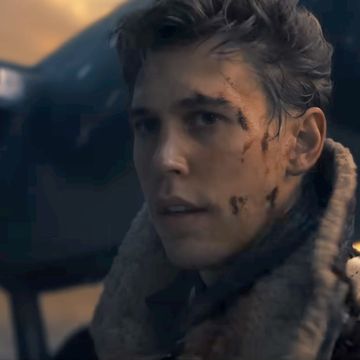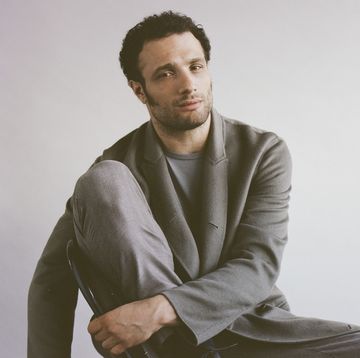We begin with Jocelyn (Lily-Rose Depp), posing for the cover of her new album. The photographer asks for a laugh, a few doe-eyed shots, a mischievous look or two, pure sex, and then finally, emotion. Jocelyn duly breaks down. It is not the most original opening to The Idol, co-created by Euphoria’s Sam Levinson and The Weeknd, but Depp manages to sell the scene, and that rings true for this debut episode, an enjoyable albeit frequently frustrating hour of sleazy summer fun.
A little background on the pop star (it is not clear what level of success she has reached, though she is compared to Britney Spears at one point): her mum recently died from cancer, and she had some kind of breakdown. In the wake of this personal crisis, Jocelyn seems to be a little lost. She’s at war with an intimacy coordinator (she wants to show her nipples, he harps on about her rider’s no nudity clause), unhappy with the direction of her music (the snippets of her new song do sound a little uninspired), and more than a little disassociated (do you want to watch Lily-Rose Depp smoke languidly? Boy, do we have a show for you!).
In this episode, “Pop Tarts & Rat Tales”, the crisis du jour is that a private photo of Jocelyn in a compromising position has leaked. She is, as one label rep notes, “frosted like a pop tart”. If you were wondering whether The Idol is a series that would dare to show that photo: it is. Regardless of whether this is provocative or gratuitous (or indeed, both), the leak is an effective plot device delineating the pop star’s entourage. Everyone around Jocelyn finds out about the photo before Jocelyn herself does.
By the time she discovers why everyone is acting weird, they’ve already begun to spin it: is she a victim? Is she a slut? Could this actually be an empowering moment? None of those discussions are interesting, but the ecosystem’s dynamic is. There is plain-talking Nikki (Jane Adams, who gets all the best lines this episode), publicist Benjamin (Dan Levy), manager Xander (Troye Sivan), Live Nation rep Andrew (Eli Roth), and Destiny (Da’Vine Joy Randolph). All these people are awful and inept. Rachel Sennott provides the show with its single shot of warmth as assistant Leia; her nagging energy and genuine concern for Jocelyn balance some of the episode’s flatter stretches.
Much of this opening act, which takes up half the episode, hinges on Depp, whose previous biggest acting credit was opposite ex-boyfriend Timothée Chalamet in 2019’s The King. She makes for a compelling aspirant pop star, both wounded and obnoxious. It is unclear how long that insouciant, minxy performance can bewitch audiences, but for now, Depp plays much better as a reactive force than when she is forced to do some solo reflection. The actor shines when she’s having a heart-to-heart, with the dancer Dyanne (played by actual world-beating pop star Jennie from Blackpink) in the sauna. Or when she’s manipulating someone, like the stand-out scene with Vanity Fair profile writer Talia (Hari Nef) where Jocelyn defuses the journalist’s power play.
Nowhere is that more obvious than in her scenes with Tedros (Abel Tesfaye), whom she meets at the club after this bad day at work, with Madonna blaring in the background. The two actors have an immediate chemistry – pushing up against one another on the dance floor, smoking and making out – and it’s possible to read many things, all at once into this relationship. Is Tedros a culty narcissist preying on a vulnerable pop star? Is Jocelyn using him as an emotional outlet? Could these two people create some great music out of an unhealthy relationship? For the moment, the show seems satisfied with a one-note explanation: Tedros is a manipulator, and Jocelyn is helpless. Any nuance is not immediately brought out by the script, though some of the clunkier phrases (“pop music is the ultimate Trojan horse”) and imagery does feel like symptoms of a pilot episode.
The following evening, Leia and Jocelyn are discussing the latter’s new single. Jocelyn is embarrassed by the lyrics, but as Leia points out, “Every song sounds weird when you talk the lyrics.” (This is true!). The pair have an easy, young-people-talking-shit vibe. When Leia says that Tedros seems “rapey” for example, Jocelyn unsettlingly admits to liking it. She invites Tedros by anyway, and plays him her new song, which he says sounds like a hit (it does not). The problem, he theorises, is that Jocelyn doesn’t believes the lyrics. “If you’re going to sing a song called ‘I’m A Freak’, you should at least sing it like you know how to fuck,” Tedros says, while winding an ice cube down her body. He proceeds to cover her head with a robe, tying a knot around her neck, and then cutting a breathing hole over her mouth. It is a supremely queasy minute of television, and one which may have played more effectively with a more accomplished actor or indeed a female point-of-view (which was the original plan before a controversial creative overhaul).
Hopefully, The Idol gets all those shock tactics out of its system early. There has been so much talk about HBO’s new show: its troubled production, its brattish desire to be provocative, its apparent failure to do so, but in truth, it’s calmer and more promising than any incendiary headline.
You can watch ‘The Idol’ weekly on Sky Atlantic and NOW TV
Henry Wong is a senior culture writer at Esquire, working across digital and print. He covers film, television, books, and art for the magazine, and also writes profiles.














